
OR
Obituary
Untimely demise of General Bipin Rawat: Loss of a staunch friend of Nepal
Published On: December 10, 2021 02:00 PM NPT By: Chiran Jung Thapa
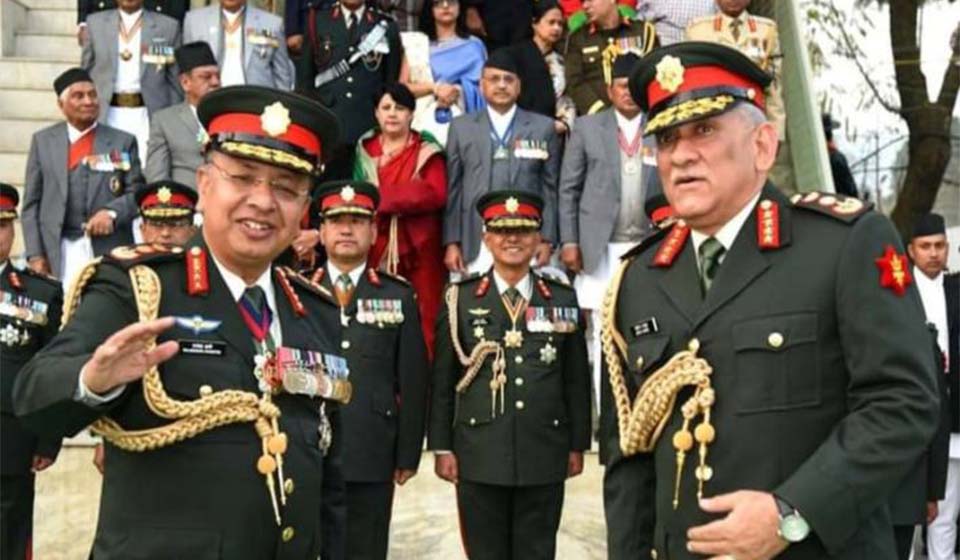
As an officer of the Gurkha Regiment, General Rawat’s connection with Nepal and Nepalis was always marked by intimacy and affection. When he visited Nepal to receive the honorary General title in 2017, he reportedly made a remarkable impression upon the President and the then Prime Minister of Nepal. He spoke in fluent Nepali and made all the right assurances.
The Nepali Army (NA) back in 2018 had decided to invite several former chiefs of the Indian Army for its Army Day celebrations. Upon learning this, I had personally reached out to the then Chief of Army Staff (COAS) – General Rajendra Chhettri and suggested that an invitation to the incumbent Indian Chief of Army Staff – General Bipin Rawat would be propitious to strengthen the military bond between our two countries. The exceptionally insightful General Chhettri who had played a pivotal role in lifting the blockade in 2015 instantly sensed the strategic significance and agreed. An invitation was dispatched the following day. General Rawat’s office, however, expressed regrets citing his hectic schedule. Following that, I had reached out to some friends and some officials in Delhi to highlight the significance of General Rawat’s visit. Two days later, General Rawat’s office came back with a positive response stating that he would attend.
General Rawat as the honorary General of NA thus became the first Indian COAS to attend the Nepali Army Day function donning the NA uniform. His attendance at the Army pavilion Tudikhel in Nepali Army uniform was certainly a momentous event for both the armies.
Later, I had an opportunity to meet General Rawat during a reception hosted in his honor by NA. Aware of his aptitude in the Nepali language, I introduced myself in Nepali. He shook my hand firmly with a brilliant smile while holding his drink in the other. In Nepali I told him, “General, I am that very Nepali guy that wrote the first analysis about your selection and appointment as COAS.” With a big grin he told me – “I know. Thank you for that.” It was then, the then Indian Ambassador Manjeev Puri came into the conversation and introduced me again as “one of the prominent security experts in the country.” I, however, did not tell him about my role in getting him to attend nor did I disclose why I had decided to write on that topic then. The piece was published a little over 24 hours after his appointment.
As Gen Rawat was the third in the Army hierarchy after Lt. General Praveen Bakshi and Lt. Gen P.M. Harris, his selection as the COAS came as a major surprise to many. General Rawat’s appointment was a marked departure from the traditional appointments in the Indian Army because (aside from one exception) the appointment of the COAS had always been based on seniority. It was also very unique because it was also the second time in the Indian Army’s history that the top position had passed on from one Gurkha regiment officer to another.
To some of us following the selection process, there was a concern about the probability of a controversy and its negative impact. General Purna Chandra Thapa who was then a Lt General at the time had inquired about my views on the selection process and then requested me to explore ways in which we could contribute to ensure that it was a smooth transition in the Indian Army. As someone totally insignificant to that process, we had no leverage to make a difference but yet decided that we could possibly influence the audience by presenting an unvarnished assessment about General Rawat’s selection. I did exactly that. It so turned out that no other in-depth analysis diagnosing his selection was published by anyone anywhere else.
Aware of my role in enabling General Rawat’s visit during the Army Day, General Purna Chandra Thapa during his tenure as the COAS entrusted me with two other responsibilities related to General Rawat. First, after Indian COAS General Manoj Mukanda Naravane’s statement - “Nepal is acting on the behest of someone” caused a major controversy in Nepal, General Thapa proactively engaged behind the scenes to generate favorable outcomes for both sides. In that process, besides the military contacts, I also served as one of the key enablers. General Rawat played a crucial role by facilitating engagement with General Naravane and also with the Indian Defense Minister. It was General Thapa who convinced General Rawat and it was General Rawat who in turn convinced both General Naravane and Defense Minister Rajnath Singh to speak positive notes about the bond with Nepal. That is what actually set the stage for General Naravane’s successful visit to Nepal.
Another task General Thapa had entrusted me with was to facilitate General Rawat’s visit to Nepal and particularly to Muktinath. General Rawat had expressed a keen desire to visit Muktinath. He had been unable to visit during his previous two visits due to unfavorable weather conditions. The dates were fixed and the Nepal Government had even given a green signal. However, due to a surge in COVID cases, his visit was cancelled.
As an officer of the Gurkha Regiment, General Rawat’s connection with Nepal and Nepalis was always marked by intimacy and affection. When he visited Nepal to receive the honorary General title in 2017, he reportedly made a remarkable impression upon the President and the then Prime Minister of Nepal. He spoke in fluent Nepali and made all the right assurances. One of the assurances he had made during his visit was to remove the hassle for the Indian Army pensioners in Nepal of travelling to pension camps to collect their pensions. He had reportedly said, “Our Nepali brothers who served alongside us so gallantly and for so many years have sacrificed their lives for India. Hence, they should not have to endure such unspeakable hardships simply to collect their pensions.” Today, because of his initiative, the pensioners now get their pensions in their respective bank accounts and no longer have to make difficult and costly journeys.
It was not just the Nepali men in his service that he was fond of. He showed the same affinity to all NA personnel he came in contact with. As a Gurkha officer and honorary General of the NA, he always felt he had a special responsibility toward Nepal. The former Nepali Defense Attaché recalled how General Rawat would personally call him out from the crowd at every function that he attended in Delhi and would inquire if there was anything the Indian Army needed to do for the NA. During his tenure as the COAS, he apparently had issued a directive to his subordinates that everything related to the NA was a top most priority and if they were unable to process it from their level, they were to come straight to him and that he would take care of it.
Even prior to assuming the highest military office, as a UN sector commander in Congo, he worked very closely with the Nepali units deployed there. Apparently he used to tell others, “If Nepali soldiers are there – they will do the finest job because I know their mettle all too well as a Gurkha officer myself.”
As a result of his genuine goodwill, the NA received unparalleled support in hardware, training and other forms of assistance since he took office. As the top hat of the armed services, he had access to all power structures in Delhi and beyond. At multiple times, he used his position to pull off some remarkable outcomes for the NA. It was he who quadrupled NA’s seats for the National Defense College (NDC). Previously, NA received only one seat a year at India’s NDC. Similarly, immediately after General Thapa mentioned about the need for COVID vaccines for NA personnel, he immediately dispatched 100,000 Covishield vaccines. Because of his commitment to cement better ties with the NA, former army chiefs of Nepal were invited to attend the Indian Army Day celebrations in India as special guests twice. Besides this, there are countless other gainful outcomes that were made possible only due to General Rawat’s goodwill.
General Rawat was a gallant soldier, a brilliant commander and a fine military strategist of the Indian Army whose affection for Nepal was mostly shaped by the utmost loyalty, professionalism and undaunted courage of the Nepali men that served alongside him in his Gurkha unit. He loved wearing the Nepali topi to symbolize and represent his mother unit and enjoyed dancing joyously to the Nepali tunes particularly the “Gorkha paltan” song. He was someone who went the extra mile to strengthen the bond between the NA and the Indian Army. He was very instrumental in strengthening the bilateral ties between Nepal and India especially during critical times. Thus, his untimely and tragic demise is not only a colossal loss to India but is also an irreparable loss for Nepal. For the thousands and thousands of Nepali nationals serving and retired from the Indian Army, they have lost a maverick commander and a guardian who sincerely worked for the greater welfare of the Gurkha families. The NA and Nepal lost one of its staunchest friends in India. Due to a heavy weight like General Rawat who occupied the highest military office as the first Chief of Defense Staff (CDS), Nepal had unrivaled access, influence and leverage. With him gone, however, many things may also be gone for the NA and Nepal.
Author is a senior security analyst based in Kathmandu. All views expressed above are personal and do not represent any group or organization.
You May Like This
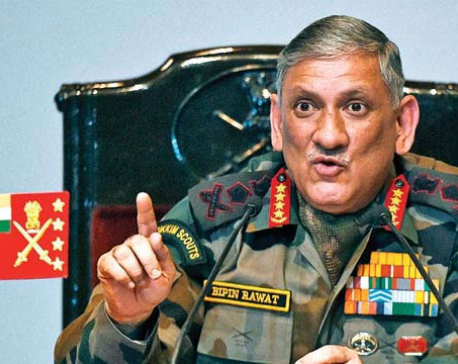
India's top defense official General Rawat, his wife and 11 others confirmed dead in army chopper crash
KATHMANDU, Dec 8: India's Chief of Defense Staff General Bipin Rawat, his wife Madhulika Rawat and 11 staff members died... Read More...
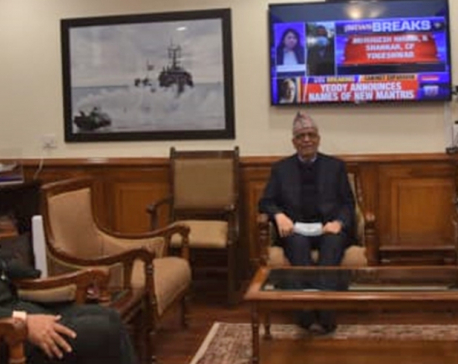
Nepal's ambassador to India calls on Chief of Defense Staff of Indian Army
KATHMANDU, Jan 14: Nepali Ambassador to India, Nilamber Acharya, called on Chief of Defense Staff of the Indian Army, General... Read More...
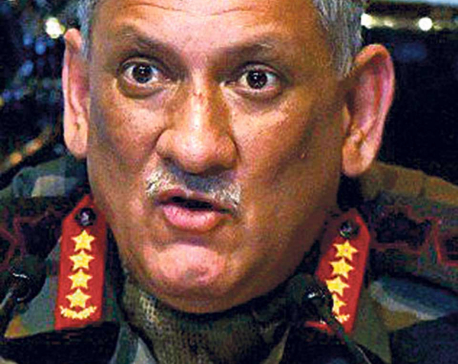
Nepal, Bhutan should be inclined to India: Indian Army chief
KATHMANDU, Sept 18: Indian Chief of Army Staff General Bipin Rawat Sunday made a controversial remark that countries like Nepal and... Read More...

Just In
- Karnali CM Kandel secures vote of confidence
- National Youth Scientists Conference to be organized in Surkhet
- Rautahat traders call for extended night market hours amid summer heat
- Resignation of JSP minister rejected in Lumbini province
- Russia warns NATO nuclear facilities in Poland could become military target
- 16th Five Year Plan: Govt unveils 40 goals for prosperity (with full list)
- SC hearing on fake Bhutanese refugees case involving ex-deputy PM Rayamajhi today
- Clash erupts between police and agitating locals in Dhanusha, nine tear gas shells fired



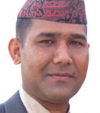








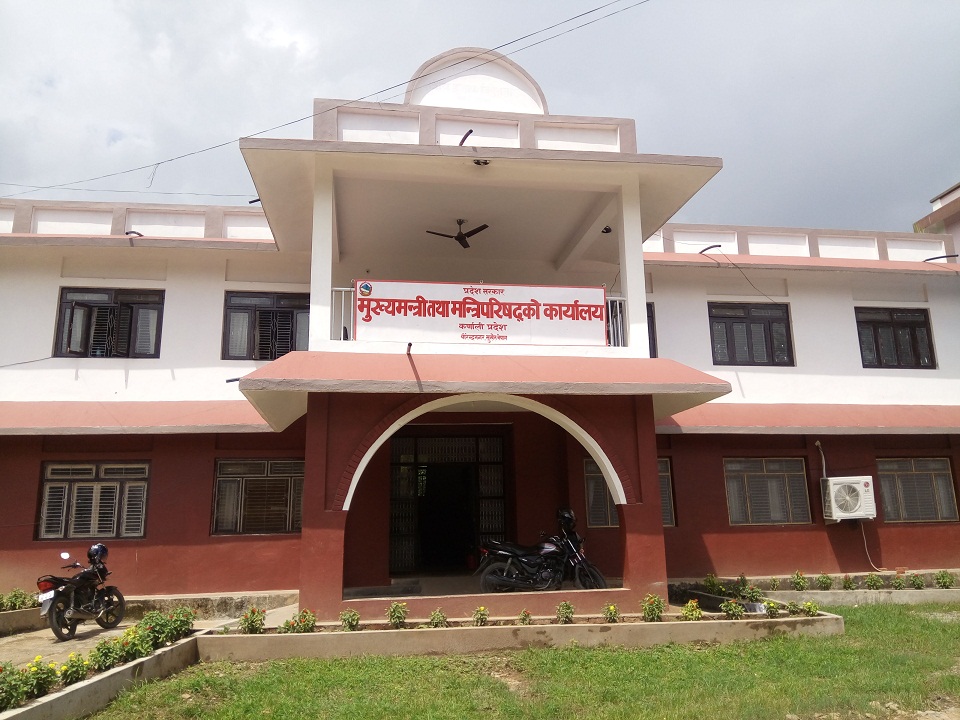
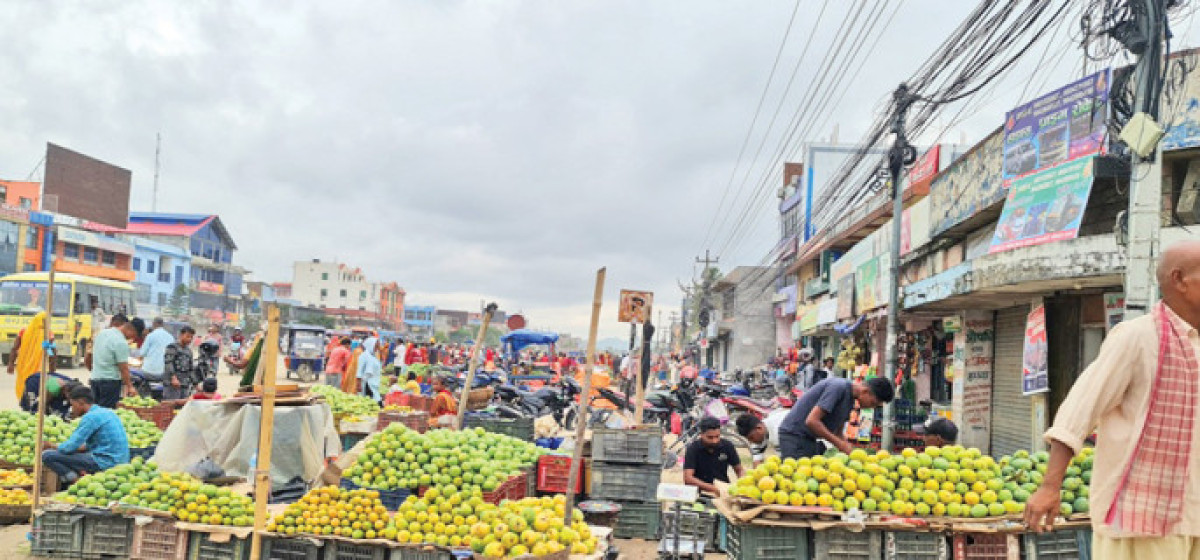
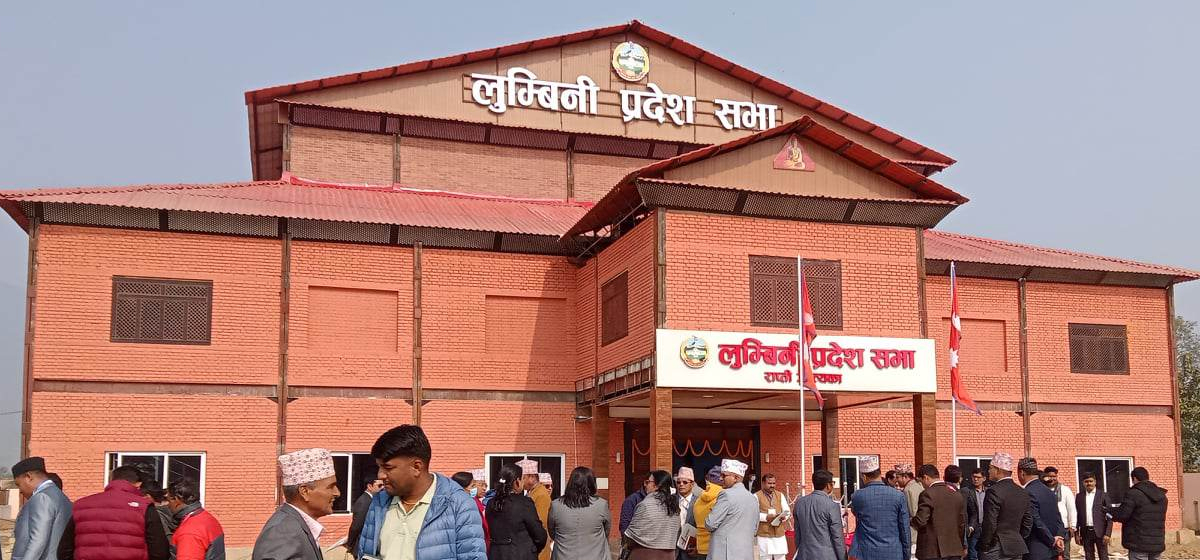




Leave A Comment